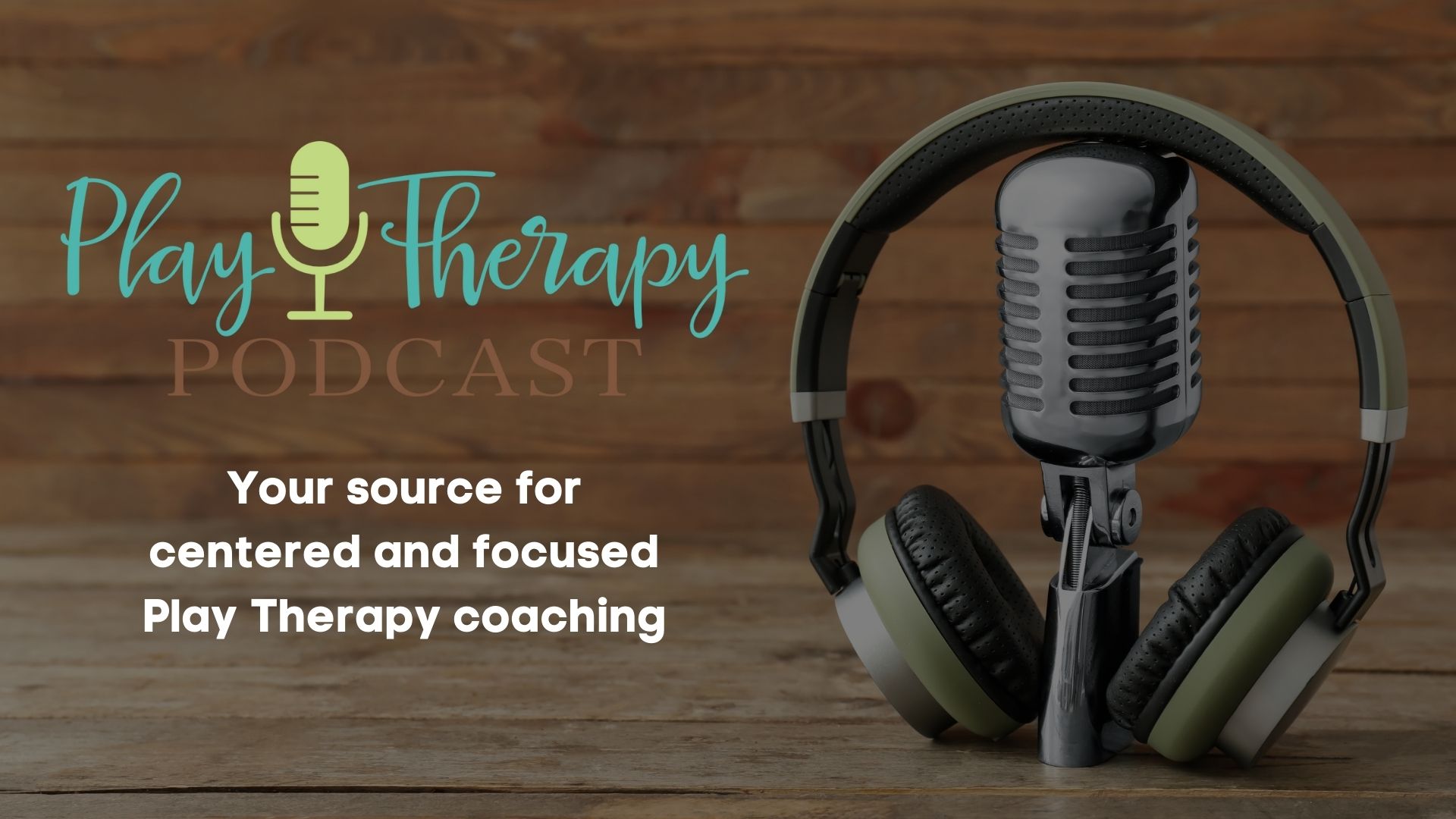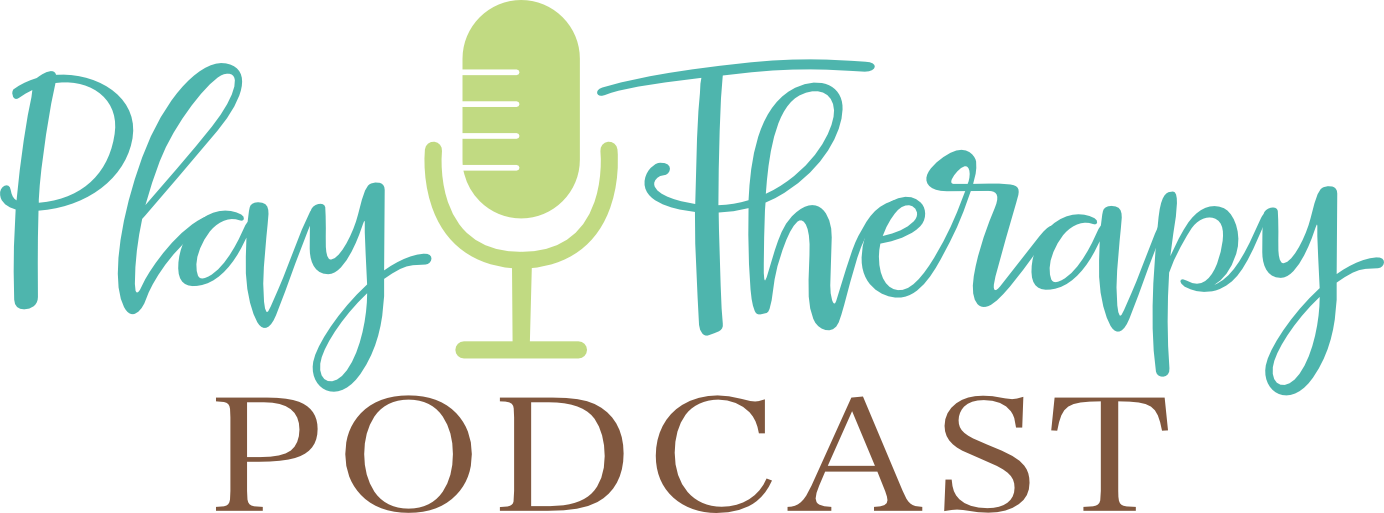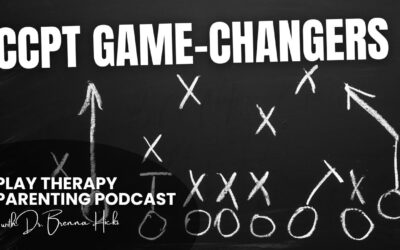
Listen to the latest episode
Subscribe to my email newsletter JUST FOR THERAPISTS!

Latest podcast episodes
363 | Reducing Attrition by Preparing Parents for Resistance
In this episode, I respond to Elliott’s question about children who strongly resist play therapy from the very beginning and parents who eventually give up and terminate early. I explain why early resistance is not a red flag for CCPT failure, but often a clear...
362 | CCPT Gamechangers: Why Overanalyzing the Play Becomes a Therapist Trap (Symbolic Play & Themes)
In this Game Changers episode, I address a pattern I’ve been seeing everywhere: therapists becoming overly focused on identifying, interpreting, and assigning meaning to themes and symbolic play. I explain why this pulls us out of attunement, distracts us from the...
360 | CCPT Gamechangers: “Mom Said I’m Supposed To…” What You Do Next Matters
In this Game Changers episode, I tackle a common but tricky moment in the playroom—when a child walks in and says, “Mom said I’m supposed to…” or repeats a parent’s explanation for why they’re in therapy. I explain why this creates an immediate rupture in...
359 | Mobile Play Therapy Challenges: Keeping Kids in the Play Space
In this episode, I answer Andrea’s question about providing CCPT in a client’s home and navigating the challenges that arise when the play space isn’t a traditional playroom. In mobile or in-home CCPT, the environment itself can make limit-setting and structure...
358 | CCPT Gamechangers: How a Language Shift Changes Everything in Feeling Reflections
In this first episode of the CCPT Game Changers series, I break down one of the smallest—but most transformative—shifts you can make in the playroom: how you phrase your feeling reflections. Many therapists unknowingly default to phrases like “that felt…” or “it seems...
357 | No Parents Allowed! – The Ripple Effect of a Parent Entering Session
In this episode, I respond to Dovi’s question about an older child whose session became dysregulated when his dad joined the playroom. I explain why parent presence fundamentally disrupts the CCPT process, breaks the therapeutic dyad, and immediately alters safety,...
356 | Attrition: The Hidden Crisis in Play Therapy (Special Episode)
In this special episode of the Play Therapy Podcast, I address what I believe is one of the most unrecognized threats to effective play therapy: high attrition and the lack of natural termination. After years of speaking with therapists around the world, I’ve realized...
355 | Costumes, Playroom Essentials, and First-Person vs. Third-Person
In this episode, I answer two great listener questions from Mikaela in Illinois. First, we dive into costumes in the playroom—what’s essential, how to think creatively with limited space, and how to make costume play meaningful for kids without overloading your...
354 | The Resistance Phase No One Talks About — And Why YOU Must Go Through It
In this episode, I talk honestly about the struggles we all face as child-centered play therapists — not as problems to be avoided, but as essential parts of our own therapeutic journey. After two meaningful conversations this week, and in the context of my own recent...
353 | Selective Mutism and CCPT: Trusting the Process
In this episode, I respond to Erin’s question about working with a selectively mute child. I explain that selective mutism isn’t a separate diagnosis—it’s rooted in paralyzing anxiety. Once we understand that, we can approach it with CCPT through safety, trust, and...
352 | Power, Control, and Anxiety: Unpacking the Child’s Need for Dominance
In this episode, I respond to Heather’s question about a client who returned to therapy after a higher level of care. This child’s play is dominated by themes of money, power, and control — and I explain how these themes often reflect underlying anxiety and a need to...
351 | Ending Well: How to Structure the Final Session in CCPT
In this episode, I walk through the final phase of Child-Centered Play Therapy—the countdown and last session. Once a child is ready to terminate, our focus shifts to helping them process and celebrate the end of therapy in a healthy, meaningful way. I explain how to...

Get Brenna’s Latest Book
Device Detox: A Parent’s Guide To Reducing Usage, Preventing Tantrums, And Raising Happier Kids.
“Dr. Brenna Hicks does an excellent job of sketching the problem, but the book shines brightest when Dr. Hicks offers a suite of practical, evidence-based strategies for coping with screen overuse in children. A valuable book that deserves to be read by parents everywhere.”












